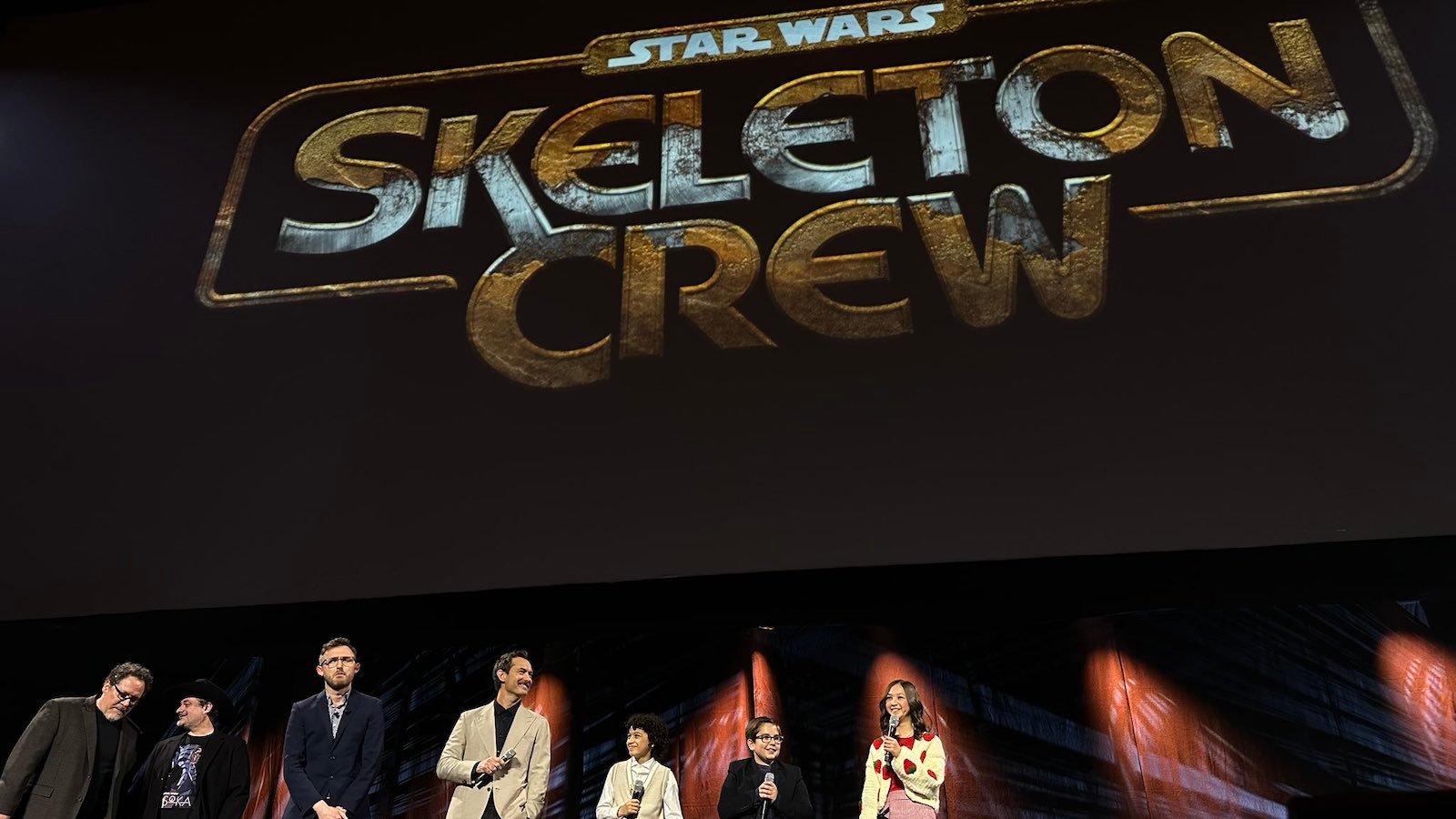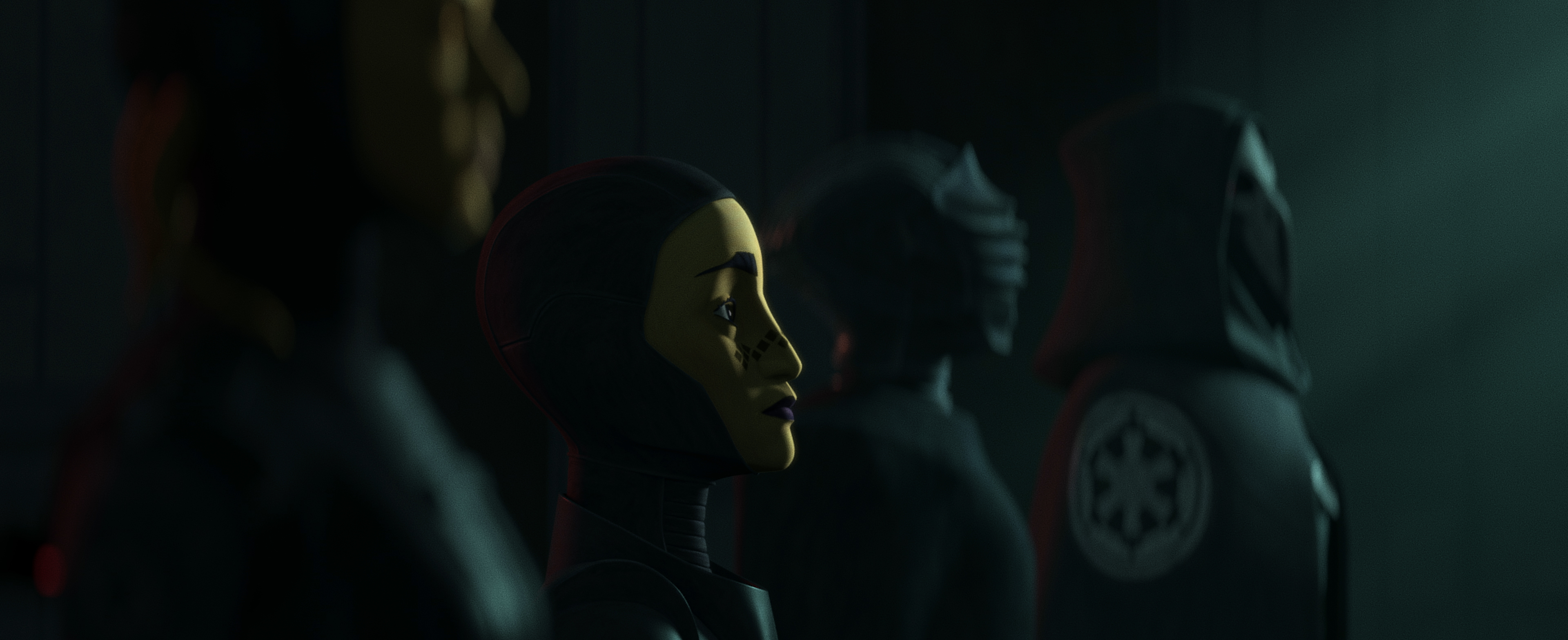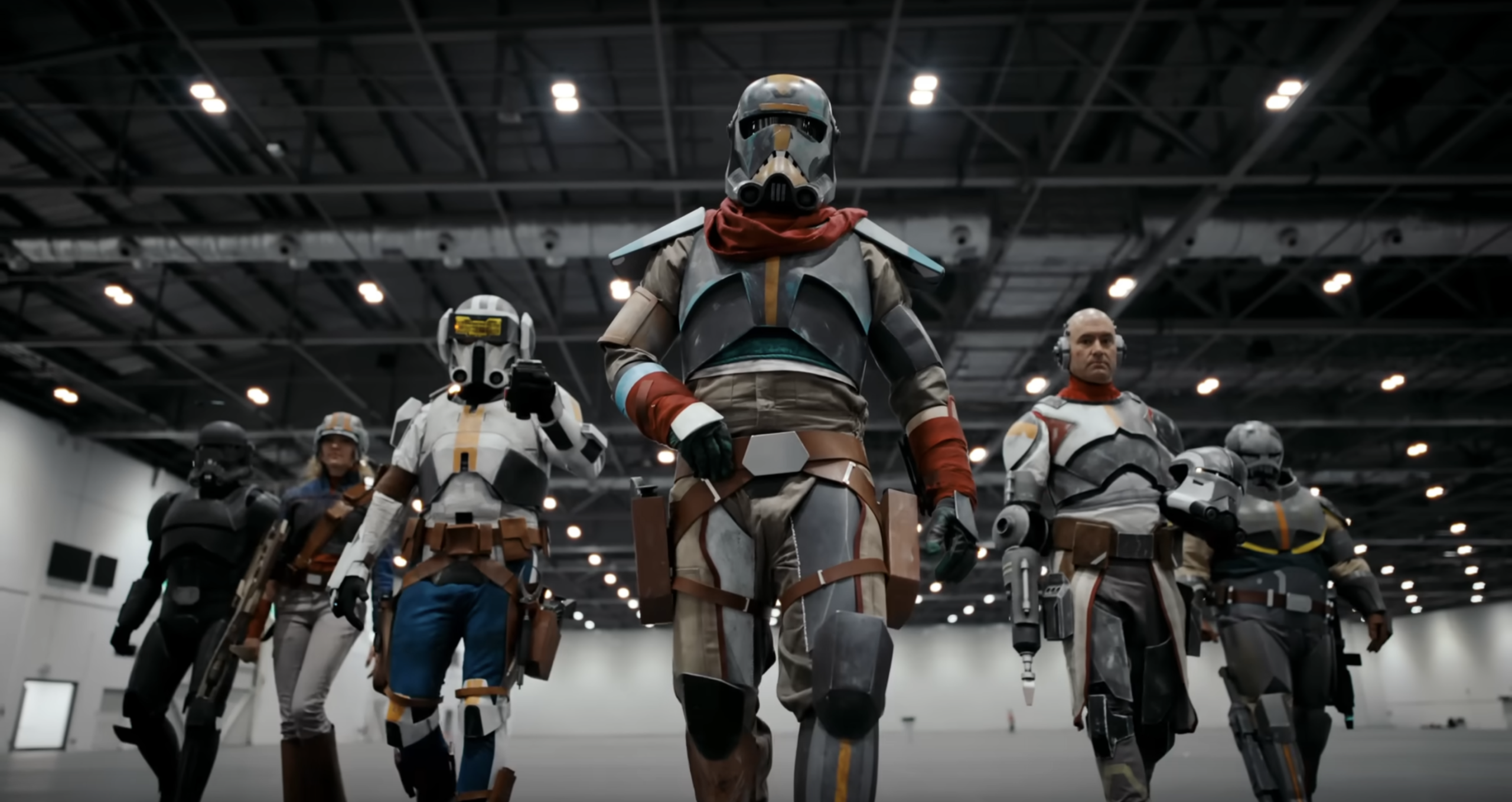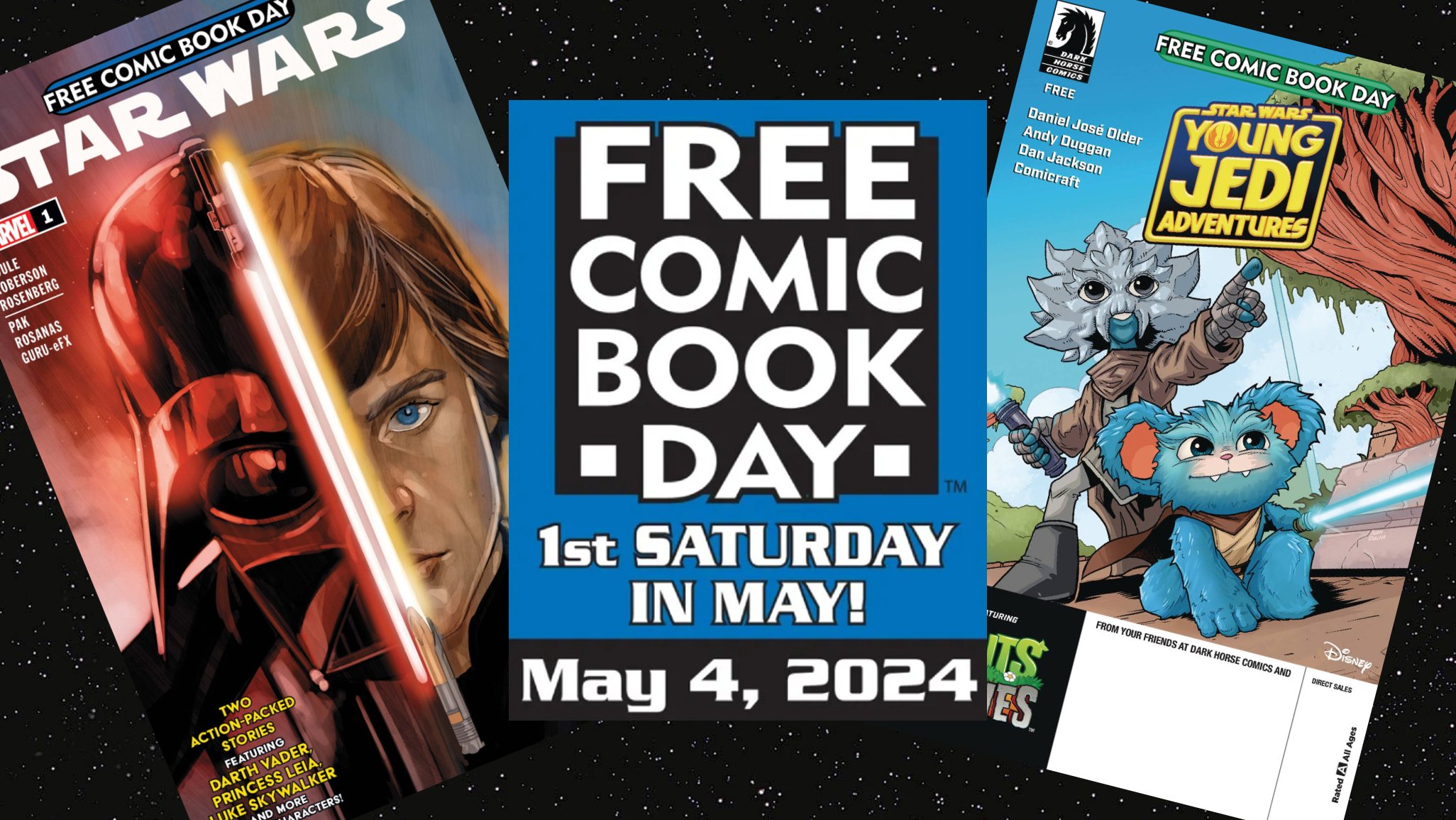‘Napoleon’ Review: A Good Trailer for the Upcoming Four-Hour Cut
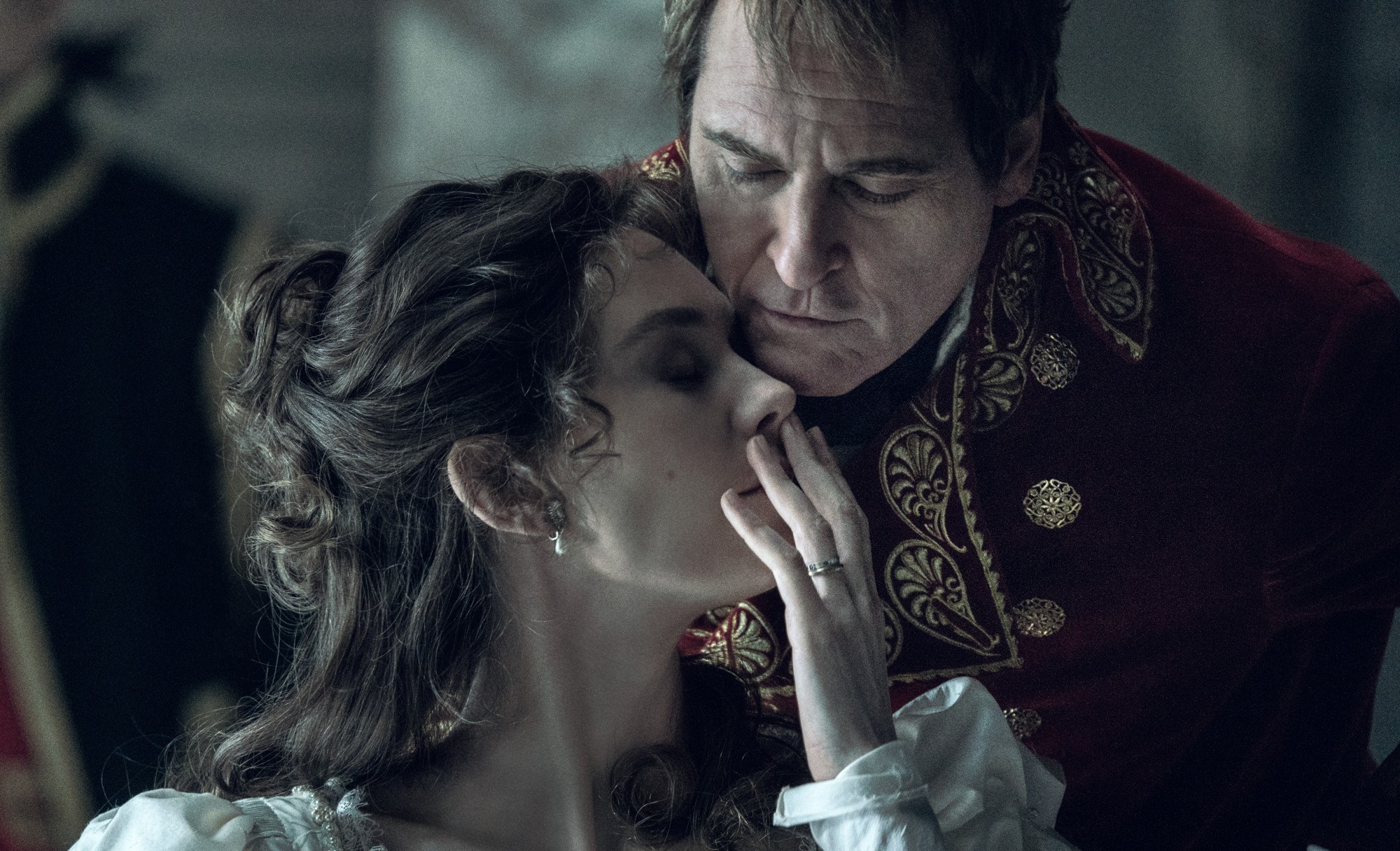
Joaquin Phoenix stars as Napoleon Bonaparte and Vanessa Kirby stars as Empress Josephine in Apple Original Films and Columbia Pictures theatrical release of NAPOLEON. Photo by: Aidan Monaghan
It always seemed like a head-scratcher that Ridley Scott would announce a 4-hour cut of Napoleon coming to Apple TV Plus next year, weeks before the theatrical cut released in theaters by Sony last Friday was ever seen by anyone. Scott is no stranger to much longer director cuts that are often hailed by the Internet as much better than the theatrical version. And though a longer edit of Napoleon may have always been inevitable, confirming its existence long before the movie even comes out kind of sets the expectation that this is not going to work that well. And those fears turned out to have a basis in reality.
Joaquin Phoenix stars as the famed French ruler who took over shortly after Marie Antoinette was guillotined. Following a successful retaking of a harbor in the North from the British, who had established a blockade, Napoleon started rising through the ranks until he sat on the throne as the new Emperor. Those 11 years could have made for an over-two-hour movie by themselves, and yet, they comprise less than half of the story Scott told in the film. To accomplish that, he and scribe David Scarpa had to not only overlook a lot of historical events and breeze over a lot of developments that probably deserved a lot more attention than the span of the blink of an eye.
In its attempt to cram into the story as much as possible and keep Napoleon at a reasonable length, the film loses a lot of focus, and it’s really unclear what Scott’s intention behind it was. Was it a deconstruction of the Napoleon myth? An attempt to get under the skin of one of Europe’s most controversial leaders? A reminder that evil is always lurking in the background, waiting for the best opportunity to appear and establish a tyrannical regime? Probably all of the above.
The figure of Napoleon Bonaparte is ridiculed for a good chunk of the film, with Phoenix playing him as a caricature of what the textbooks actually describe. It’s funny, it’s meant to be, and I at least appreciate it for it. For the most part, it worked, because Joaquin Phoenix can really bring a level of quirkiness to the role that not many other actors can — mostly because that’s his actual nature. But the toned-down satire is at its highest when it focuses on the relationship between Napoleon and Joséphine (Vanessa Kirby), in particular with, but not limited to their sex scenes together.
Napoleon was also approached through the lens of the marriage between these two characters, which is pretty much the only relationship actually explored by the film, and yet it feels like there was so much more left on the cutting room floor. While Napoleon likes to be in control at all times in any other situation, he pretty much surrenders himself to Joséphine from the moment they lay eyes on each other. And she does not back away; she’s aware that she has ownership over him, and sometimes that leads to feeling overconfident and even cocky. Their time together can be summed up as Napoleon trying to establish himself as the leader, but succumbing to his blind love for her.
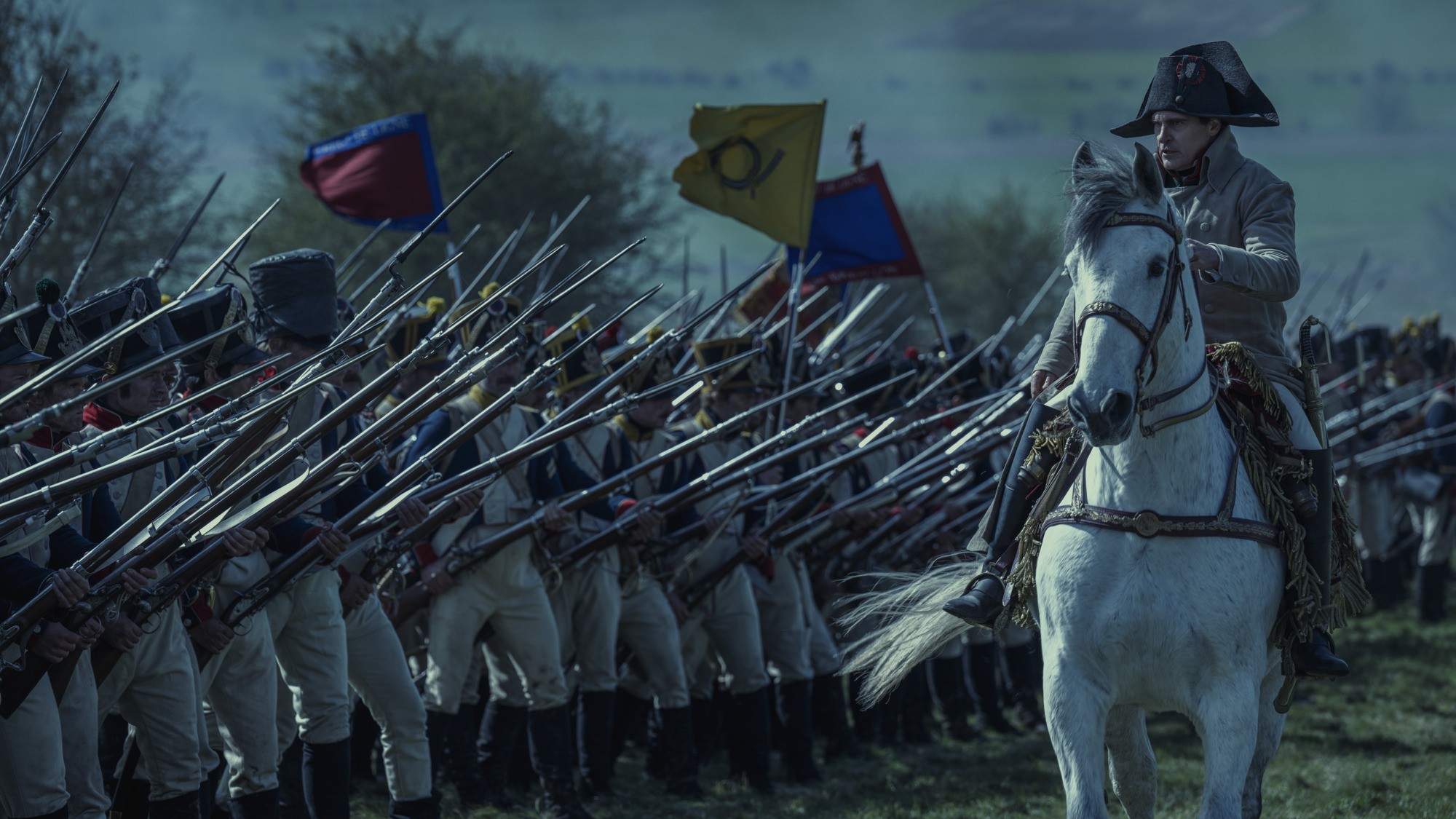
Joaquin Phoenix stars as Napoleon Bonaparte in Apple Original Films and Columbia Pictures theatrical release of NAPOLEON. Photo by: Kevin Baker
But Joséphine is not afraid of him, and it’s not long after they get married and he’s off to a military offensive outside of France that she starts exploring the extra-marital life. That moment is the perfect example of one of the film’s biggest problems, as Scott doesn’t feel the need to explain how we got from point A to point B (point A being, in this case, Napoleon and Joséphine getting happily married; point B being Joséphine in bed with someone else), he just expects the audience to catch up and go along for the ride. While we may be able to fill the void in this particular instance, especially considering what happened before and what happens later, there are other cases in which bridges disguised as minutes of screen time are missing between scenes.
There are some parallels to be made between some of the events that take place in the film and some events in recent history, including US and UK politics. With the final title card, Scott makes it abundantly clear that this is a warning sign — Napoleon was no hero, and this is a warning sign for everyone about following fanatics and wannabe tyrants who don’t have anything else in mind other than feeling taller when looking in the mirror. And yet it feels like a lot was left on the table.
And that doesn’t only apply to the story. Vanessa Kirby also felt like she didn’t give it all in every scene, despite some moments where she truly shined. This all goes back to the feeling of divided soul that the movie exudes, as it can’t really decide if it wants to be a historical biopic or a critical look at the world today. Is Joséphine the most important character in the story, or is she just an idea in Napoleon’s head that doesn’t really meet the reality he lives in, which is also what is driving him insane?
That also applies to the battle sequences, which, in the couple instances in which Scott really goes for it, are epic in scale and live up to the hype of the trailers. But who are we rooting for here, exactly? Maybe there’s something to be said about the lack of empathy with any of the characters in this situation, though I can’t quite put my finger on it yet. The final title card alludes to the massive number of deaths Napoleon’s grandiose aspirations were responsible for, yet aside from a couple of instances, we don’t really feel those losses throughout the film.
And despite all of that, I am curious to check out Scott’s four-hour cut next year. I don’t think it will fix all of the issues, but getting more time with Joséphine and Napoleon might give us a sense of what Scott actually intended with the film. However, the necessity of a four-hour director’s cut to properly present this story is the definitive argument that this probably should have been a live-action series rather than a theatrical film. Maybe one day some of our top-tier directors will decide between trimming down their new projects to fit into a reasonable runtime and opting to do a miniseries instead.
Napoleon is currently in theaters worldwide.
Miguel Fernández is a Spanish student that has movies as his second passion in life. His favorite movie of all time is The Lord of the Rings, but he is also a huge Star Wars fan. However, fantasy movies are not his only cup of tea, as authors like Scorsese, Fincher, Kubrick or Hitchcock have been an obsession for him since he started to understand the language of filmmaking. He is that guy who will watch a black and white movie, just because it is in black and white.



